The brilliant Stephen Hawking provided a parting gift to humanity before his death, as he detailed the moment it became clear that his health was deteriorating.
After battling with motor neurone disease (MND) for 55 years, on March 14, 2018, one of our planet’s greatest minds passed away due to complications with his chronic condition – but not before giving one final piece of advice to the world.
The 76-year-old theoretical physicist is known for his astronomical contribution to the theory of space and time, providing in-depth detail into how black holes work – more than 1,000 light years away from the closest one to Earth.
Speaking about what he believes the future holds for mankind, the Oxford-born Brit said: “There are many ambitious experiments planned for the future. We will map the positions of billions of galaxies, and we will better understand our place in the universe. But we must also continue to go into space for the future of humanity.


Stephen Hawking’s contribution to modern science and our understanding of space and time has been astronomical – if you pardon the pun! (Bryan Bedder/Getty Images for Breakthrough Prize Foundation)
“I don’t think we will survive another thousand years without escaping beyond our fragile planet. It has been a glorious time to be alive, doing research in theoretical physics.
“The fact that we humans, who are ourselves mere collections of fundamental particles of nature, have been able to come this close to an understanding of the laws governing us and our universe is a great triumph, and I am happy if I have made a small contribution.”
Before offering one final piece of advice to humanity: “I want to share my excitement and enthusiasm about this quest, so remember to look up at the stars and not down at your feet. Try to make sense of what you see, and wonder about what makes the universe exist. Be curious.
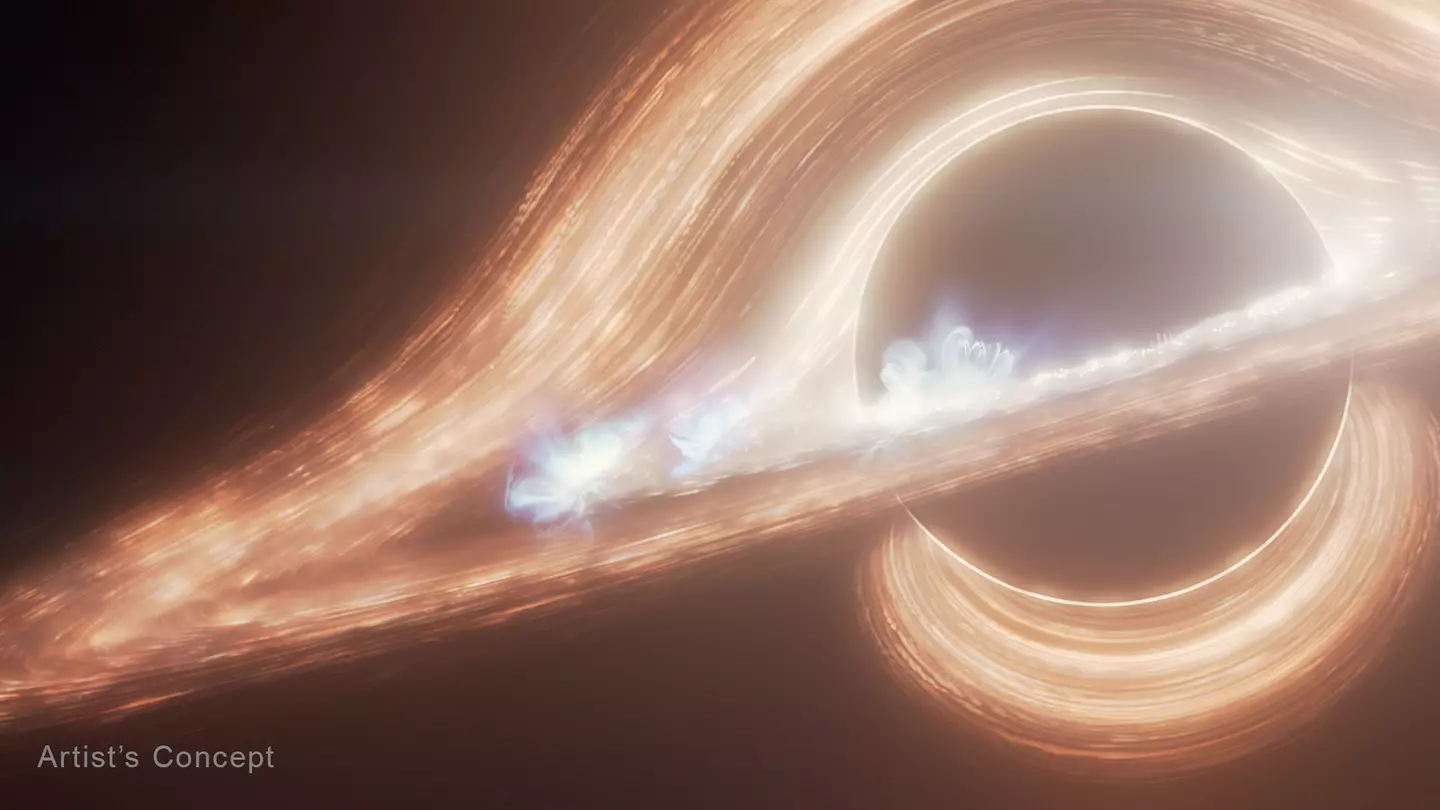

It is thanks to Stephen Hawking that we know such great deal about black holes (NASA, ESA, CSA, Ralf Crawford (STScI))
“And however difficult life may seem, there is always something you can do and succeed at. It matters that you don’t just give up. While there’s life, there is hope.”
The cosmologist’s thoughts reflect how his outlook on life changed after being diagnosed with MND, a rare debilitating condition that damages the motor neurons in the brain and spinal cord, at the age of 21.
Over the course of more than a decade Hawking‘s health rapidly declined, leaving him completely paralyzed by 1970 – 17 years after his early-onset MND diagnosis.
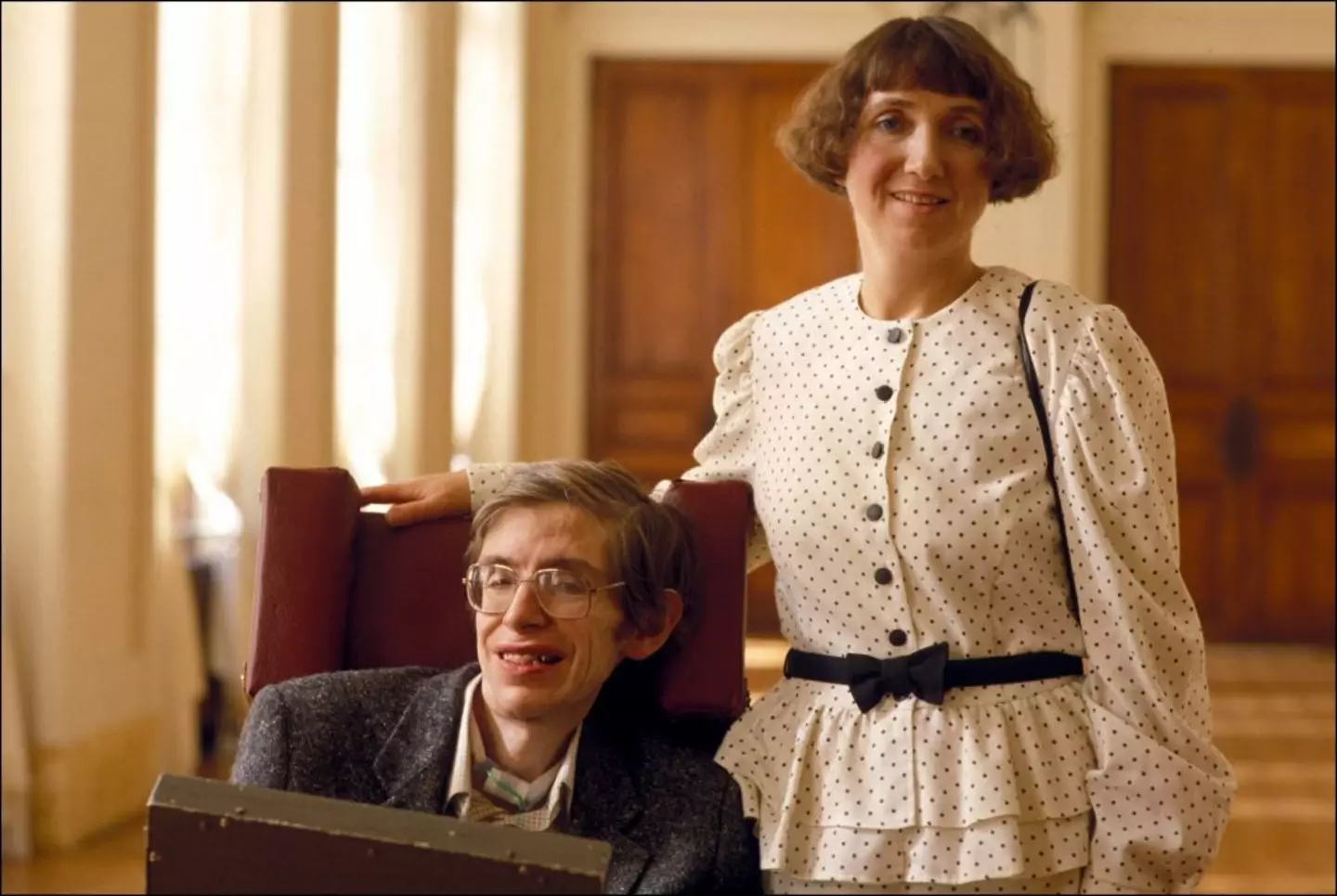

Hawking and his ex-wife Jane Hawking pictured back in 1989 (Gilles BASSIGNAC/Gamma-Rapho via Getty Images)
Touching on how his life changed following the devastating discovery, he said: “At first I became depressed, I seemed to be getting worse pretty rapidly – there didn’t seem any point working on my PhD, because I didn’t know if I would live long enough to finish it. I had come to Cambridge to do cosmology, and cosmology I was determined to do.
“Then the condition developed more slowly, and I began to make progress in my work. After my expectations had been reduced to zero, every new day became a bonus, and I began to appreciate everything I did have.
“And there was also a young woman called Jane, whom I had met at a party. Getting engaged lifted my spirits, and I realized while there’s life, there is hope.”
Humanity will be forever grateful to Stephen Hawking and his contribution to modern science.
Featured Image Credit: YouTube/goalcast
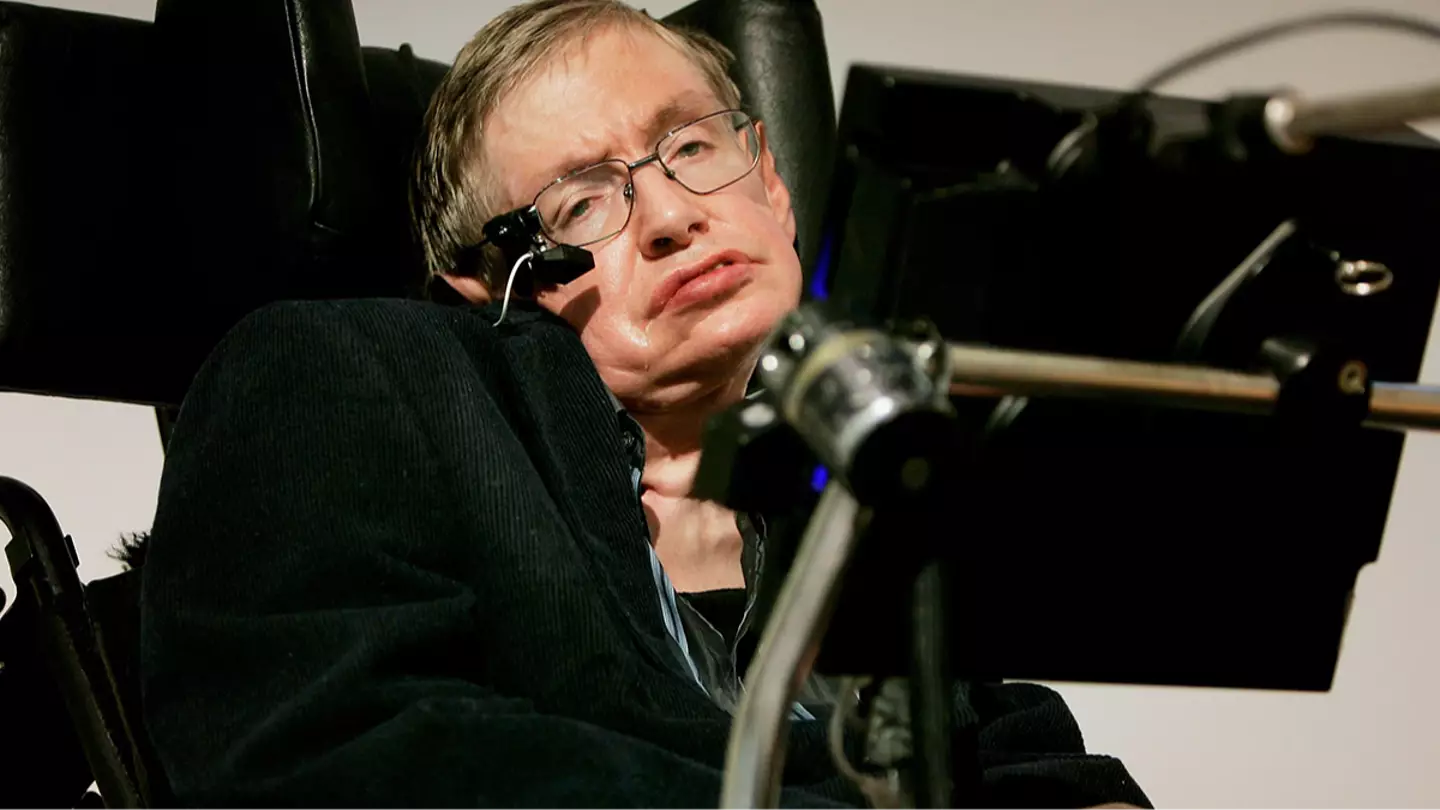

Stephen Hawking may be known for solving complex theoretical physics and cosmological problems, but he had the ‘simplest explanation’ when questioning whether God exists.
Given the clash which often occurs when it comes to science and religion, you may have a sense of where this is going.
However, as one of the world’s most famous and renowned scientists, Hawking decided to look at the two typically opposing sides and compare them on the basis of their ‘laws’ per say.
Hawking – who passed away in 2018 at the age of 76 – was a world-renowned theoretical physicist, cosmologist and author, best known for his work in the fields of general relativity and quantum gravity alongside writing a book titled The Theory of Everything: The Origin and Fate of the Universe (2002).
Speaking about his disability in his final book, Brief Answers to the Big Questions, Hawking discussed the idea of God and religion, writing: “For centuries, it was believed that disabled people like me were living under a curse that was inflicted by God.
He continued: “Well, I suppose it’s possible that I’ve upset someone up there, but I prefer to think that everything can be explained another way, by the laws of nature.
“If you believe in science, like I do, you believe that there are certain laws that are always obeyed. If you like, you can say the laws are the work of God, but that is more a definition of God than a proof of his existence.”
Hawking then went on to share his opinions on the possibility of a God or life after death.
He voiced: “We are each free to believe what we want and it’s my view that the simplest explanation is there is no God.
“No one created the universe and no one directs our fate. This leads me to a profound realization, there’s probably no Heaven and no afterlife, either. We have this one life to appreciate the grand design of the universe and for that I am extremely grateful.”
And he echoed a similar sentiment during an interview with The Guardian.
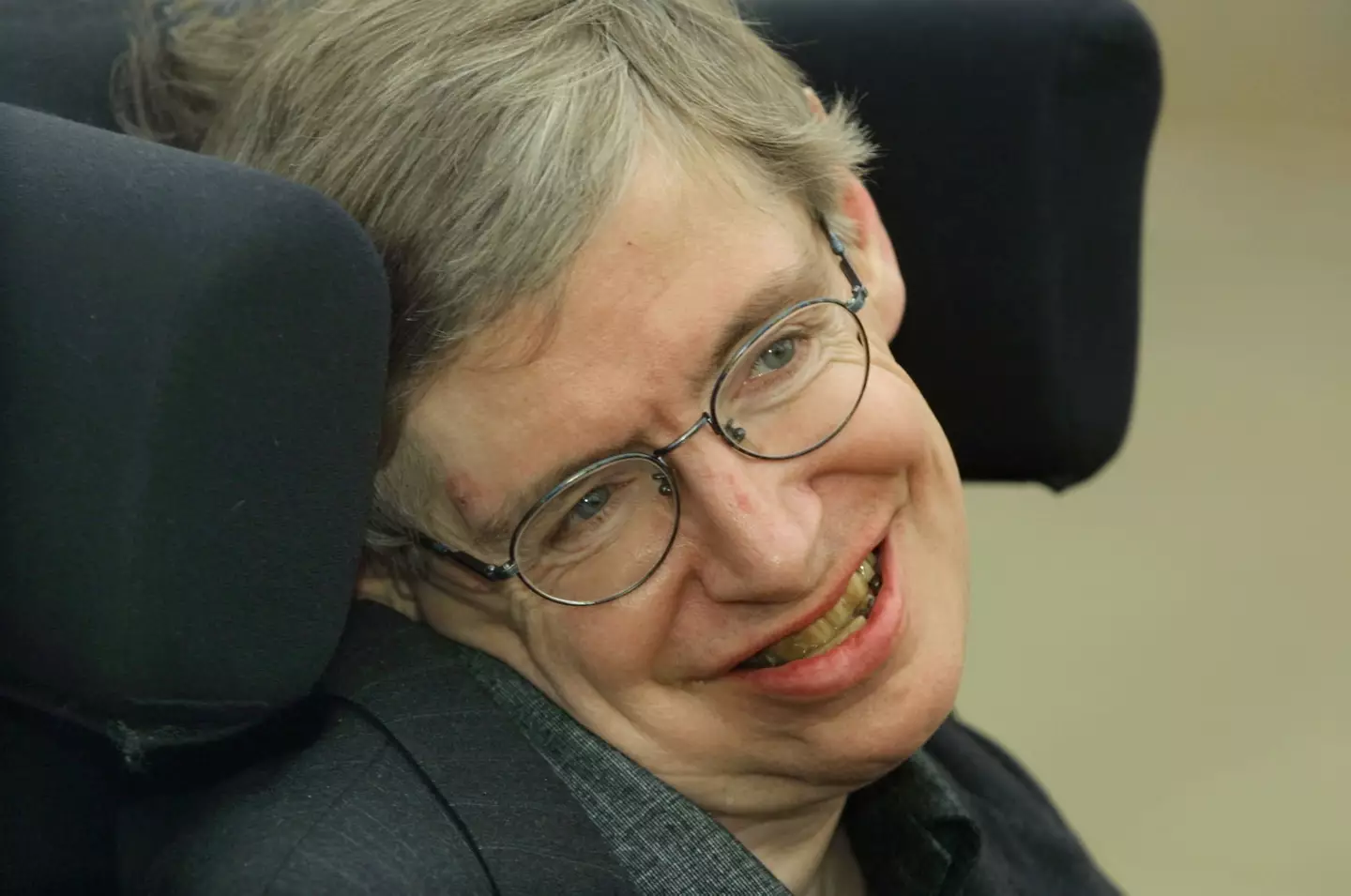

Shockingly, Hawking was an atheist (Sion Touhig/Getty Images)
He said: “I regard the brain as a computer which will stop working when its components fail.
“There is no heaven or afterlife for broken down computers; that is a fairy story for people afraid of the dark.”
However, that’s not to say Hawking – who was was diagnosed with Amyotrophic Lateral Sclerosis (ALS), a type of motor neurone disease, in 1963, when he was just 21-years-old. – didn’t find solace and meaning elsewhere.
He said, as per the New York Times: “Remember to look up at the stars and not down at your feet. Try to make sense of what you see and wonder about what makes the universe exist.
“Be curious. And however difficult life may seem, there is always something you can do and succeed at.”
Featured Image Credit: Bruno Vincent/Getty Images
Topics: Science, Religion, World News, Celebrity
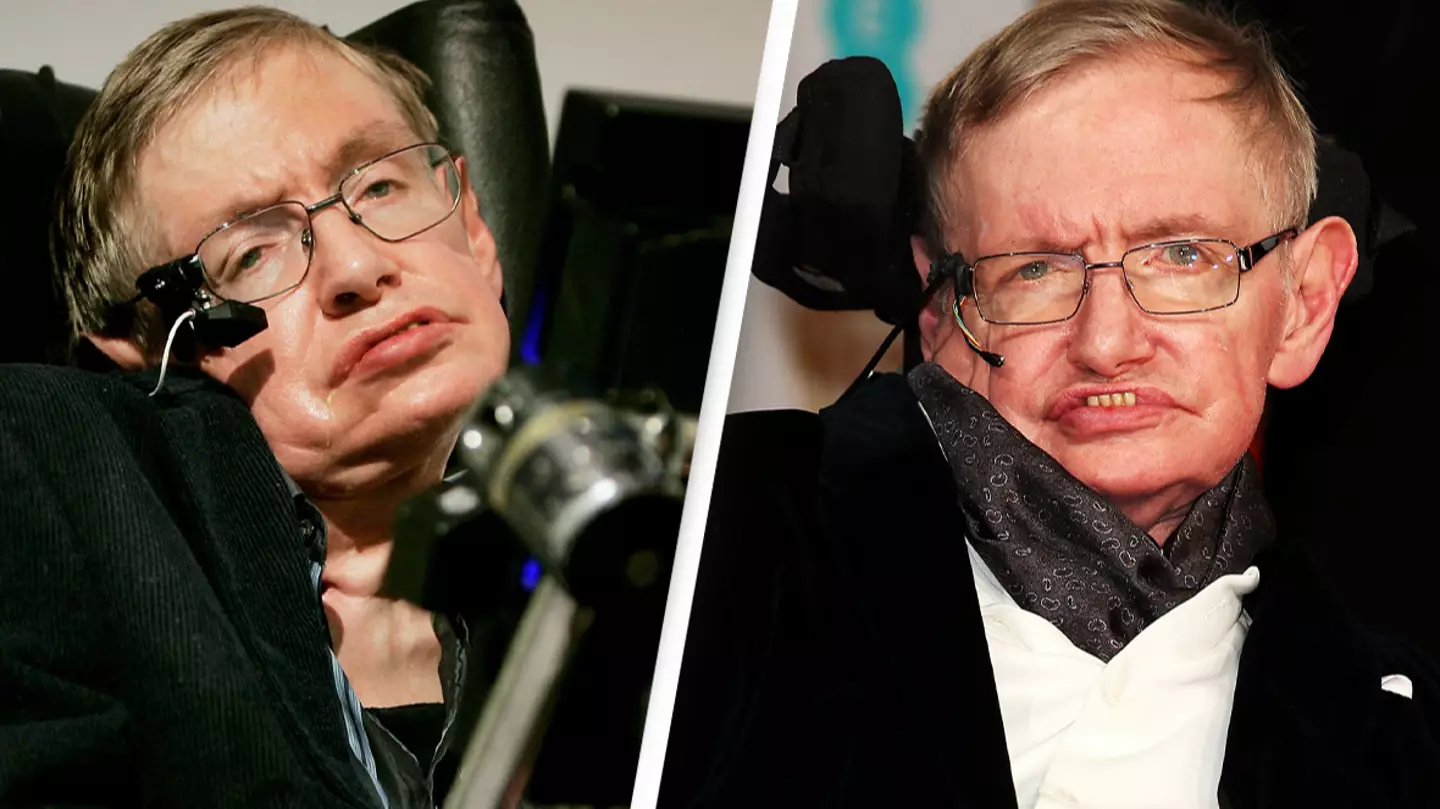

Turns out we should’ve all been paying a bit more attention during our binge-watching of Ice Age during Christmas.
As we head into 2025, the impacts of artificial intelligence and climate change may still feel like a safe-enough distant reality, however, that doesn’t mean ‘disaster’ isn’t coming as predicted by the late theoretical physicist and cosmologist, Stephen Hawking – and potentially Ice Age: Collision Course too.
Who’d have thought, eh?
Director of research at the Centre for Theoretical Cosmology at the University of Cambridge and considered one of the most prestigious academics across the whole world, Hawking shared several theories, concerns and suggestions before he passed away in 2018.
One idea he repeatedly advocated for was the idea of humans trying to find another planet to inhabit rather than simply relying on Earth.
During a press conference in 2017 in London, Hawking warned: “I strongly believe we should start seeking alternative planets for possible habitation.
“We are running out of space on Earth and we need to break through the technical limitations preventing us living elsewhere in the universe.”
And it’s not just running out of space which Hawking was worried about either.
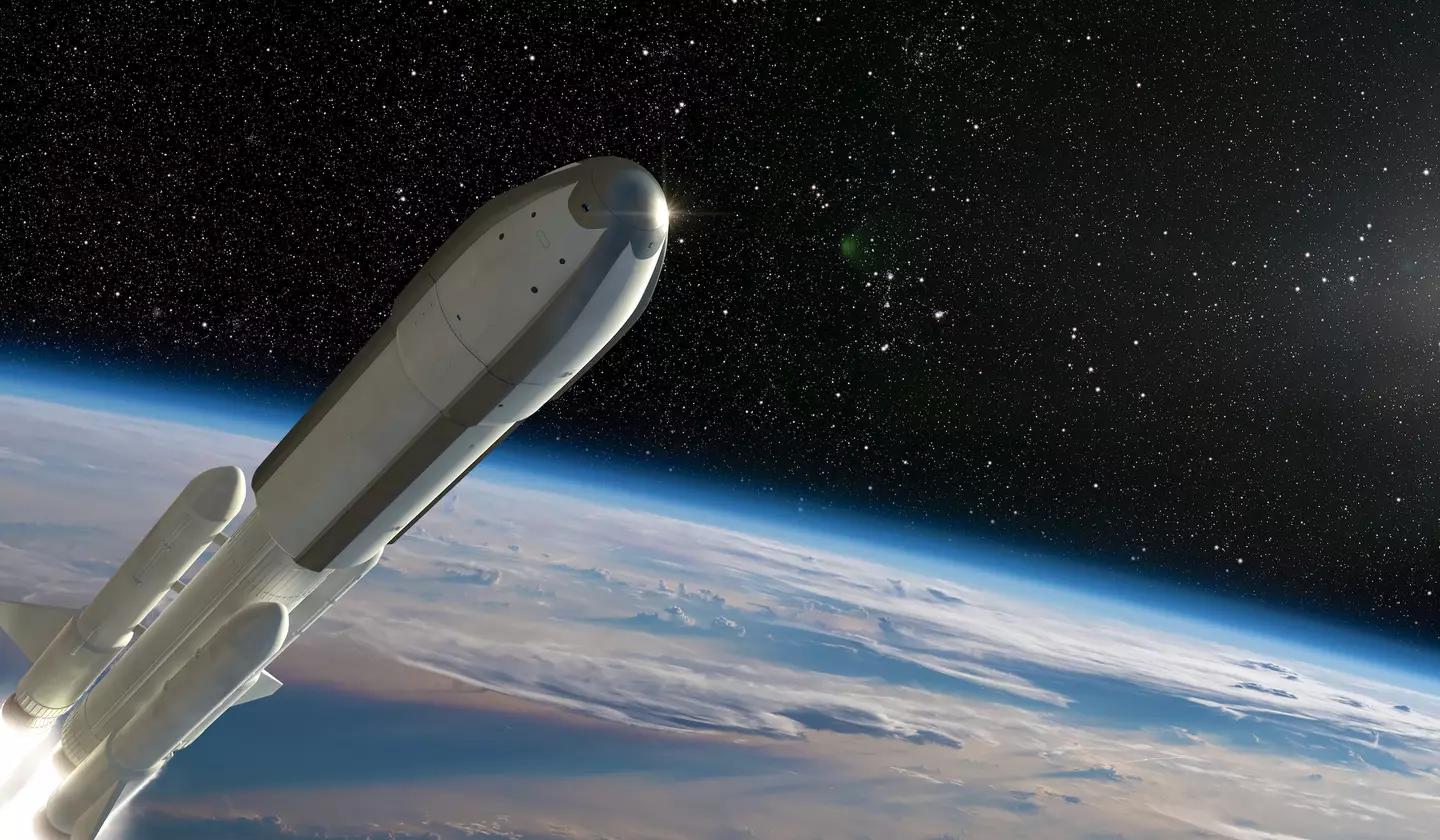

Hawking voiced the need to find another planet to live on and not just rely on Earth (Getty Stock Images)
Given how close asteroids come to Earth – some even colliding with our planet – it’s far from wild Hawking shared his concern about a large asteroid striking Earth and wiping us all out in a mass extinction.
We may laugh about it all when binge-watching Ice Age, but it’s actually a more real possibility than we realized age nine – or 24, hey I don’t judge – shovelling popcorn in our mouths while watching Scrat and his acorn obsession result in a huge rock barrelling towards Earth.
Oh and it’s not just asteroids to worry about either, artificial intelligence on the rise – TV series HUM4NS now looking like it really was predicting the future rather than simply make-believe for our entertainment.
Throw into the mix climate change, genetically modified (GM) viruses and nuclear war and hey, it’s a miracle we’re all still alive really.
And in a 2016 interview with the BBC, Hawking predicted just how long humankind has left if we do remain on Earth and only Earth.
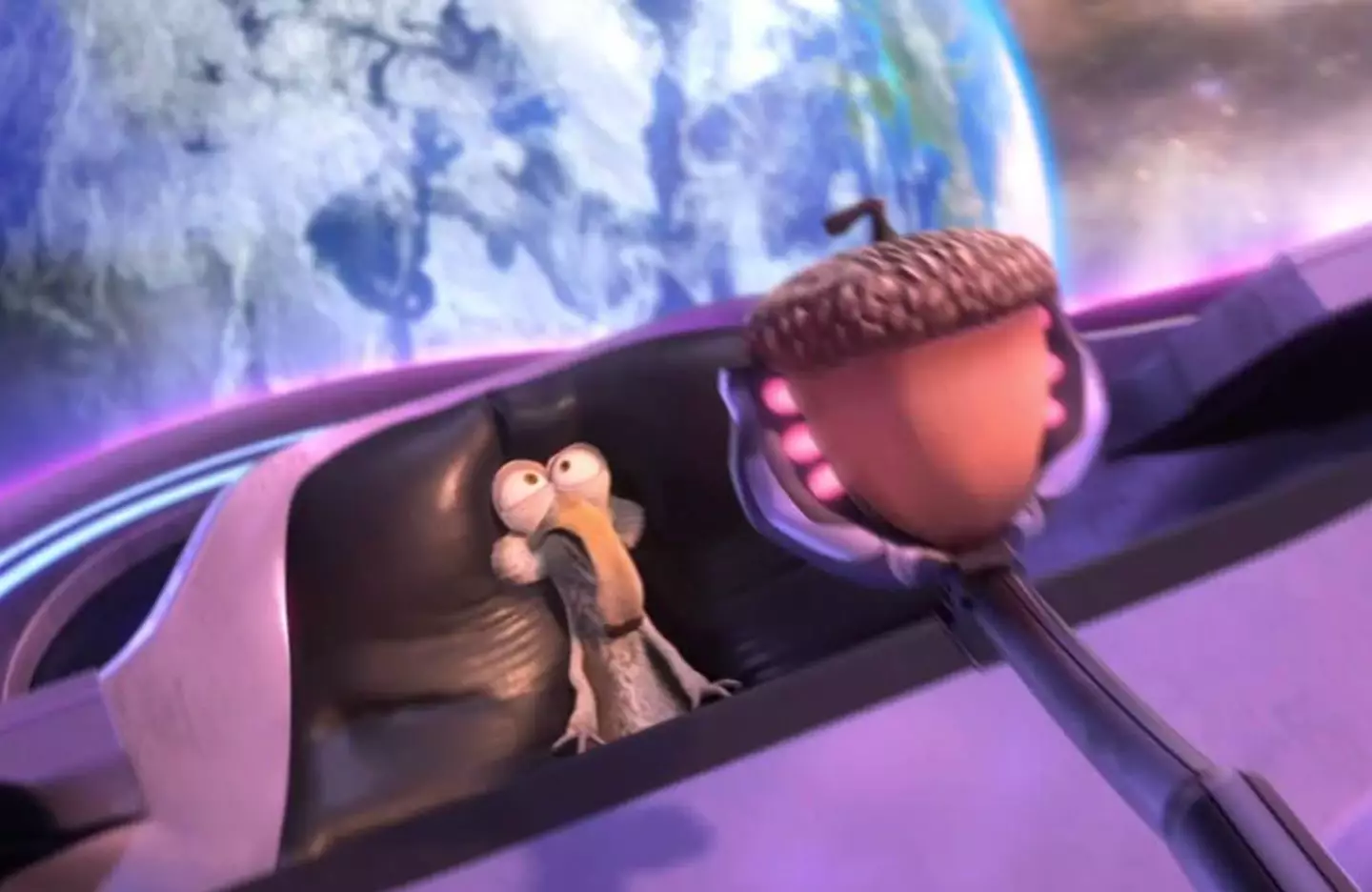

Note to humanity: Don’t let any squirrels into space anytime soon (20th Century Fox)
He warned: “Although the chance of a disaster to planet Earth in a given year may be quite low, it adds up over time, and becomes a near certainty in the next thousand or 10,000 years.”
There is hope however, Hawking noting at the time he was fairly confident we’d have all found a way out to another planet by the time ‘disaster’ does strike.
But that doesn’t mean it will happen within many of our lifetimes, the physicist guessing humans won’t ‘establish self-sustaining colonies in space for at least the next hundred years’ and so ultimately we will have to be ‘very careful in this period’ ahead.
So, how about taking a leaf out of Greta Thunberg’s book and becoming an environmental activist for 2025?
Featured Image Credit: Bruno Vincent/Getty Images / Mike Marsland/WireImage/Getty
Topics: World News, Science, Space, Artificial Intelligence, Climate Change
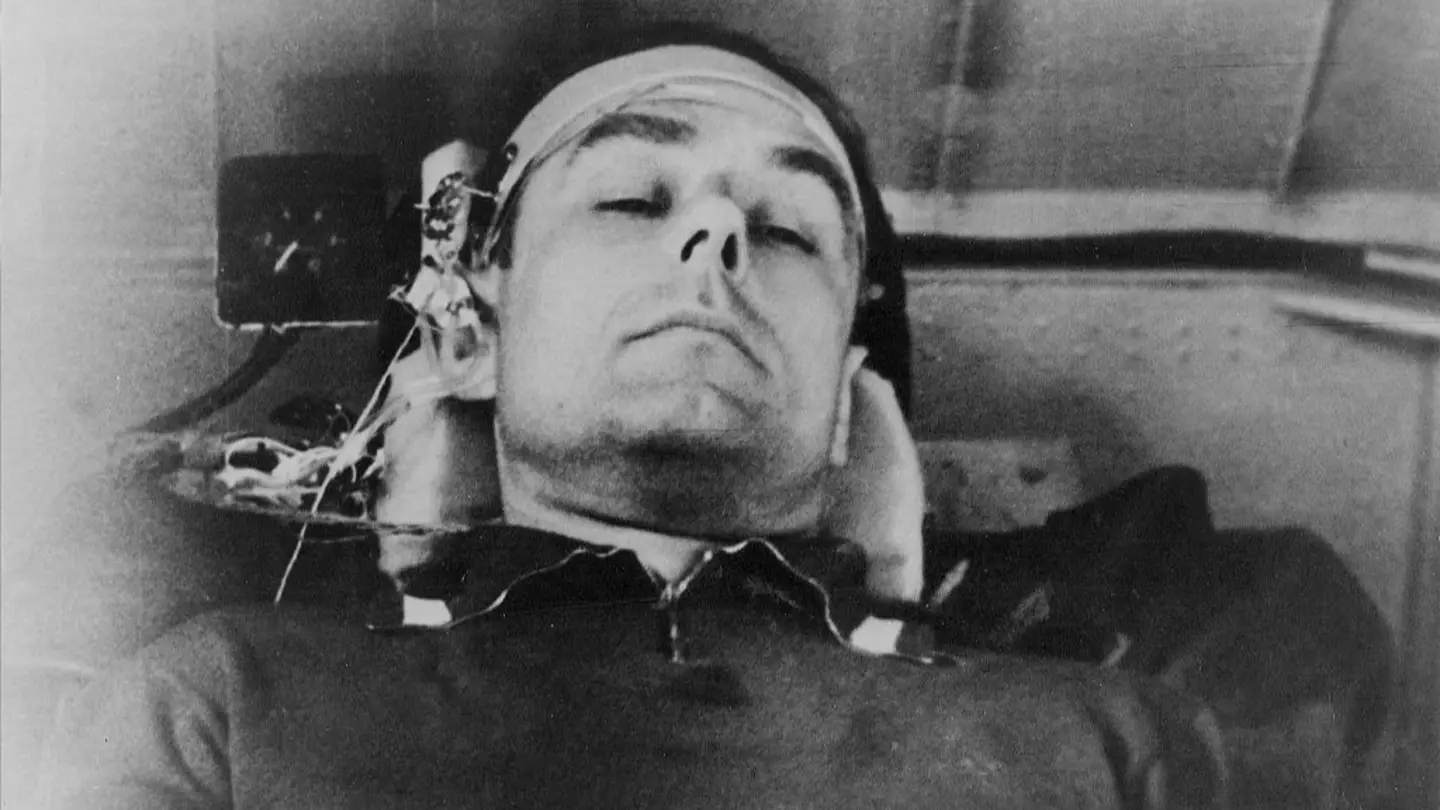

A cosmonaut used his final transmission to issue haunting final words as he fell from space to his death.
In April 1967, Soyuz 1 began its first crewed spaceflight, with Vladimir Mikhaylovich Komarov being the one to lead the mission.
However, disaster struck when the spaceflight, which was part of the Soviet space program as Russia and the US went head-to-head in the space race, crashed into an open field at around 7 a.m.
Komarov then became known as the ‘man who fell from space’. It has been 58 years since the crash; however, many key details of the events leading up to it are hazy.
In 2011, Komarov’s death was covered in the controversial book Starman: The Truth Behind the Legend of Yuri Gagarin, but critics have long questioned the book, believing that it contains many ‘errors’.
What we do know thanks to verified reports by NASA, is that Komarov made numerous orbits around the Earth in his spacecraft and that his issues began after re-entering the Earth’s atmosphere following the completion of his mission.
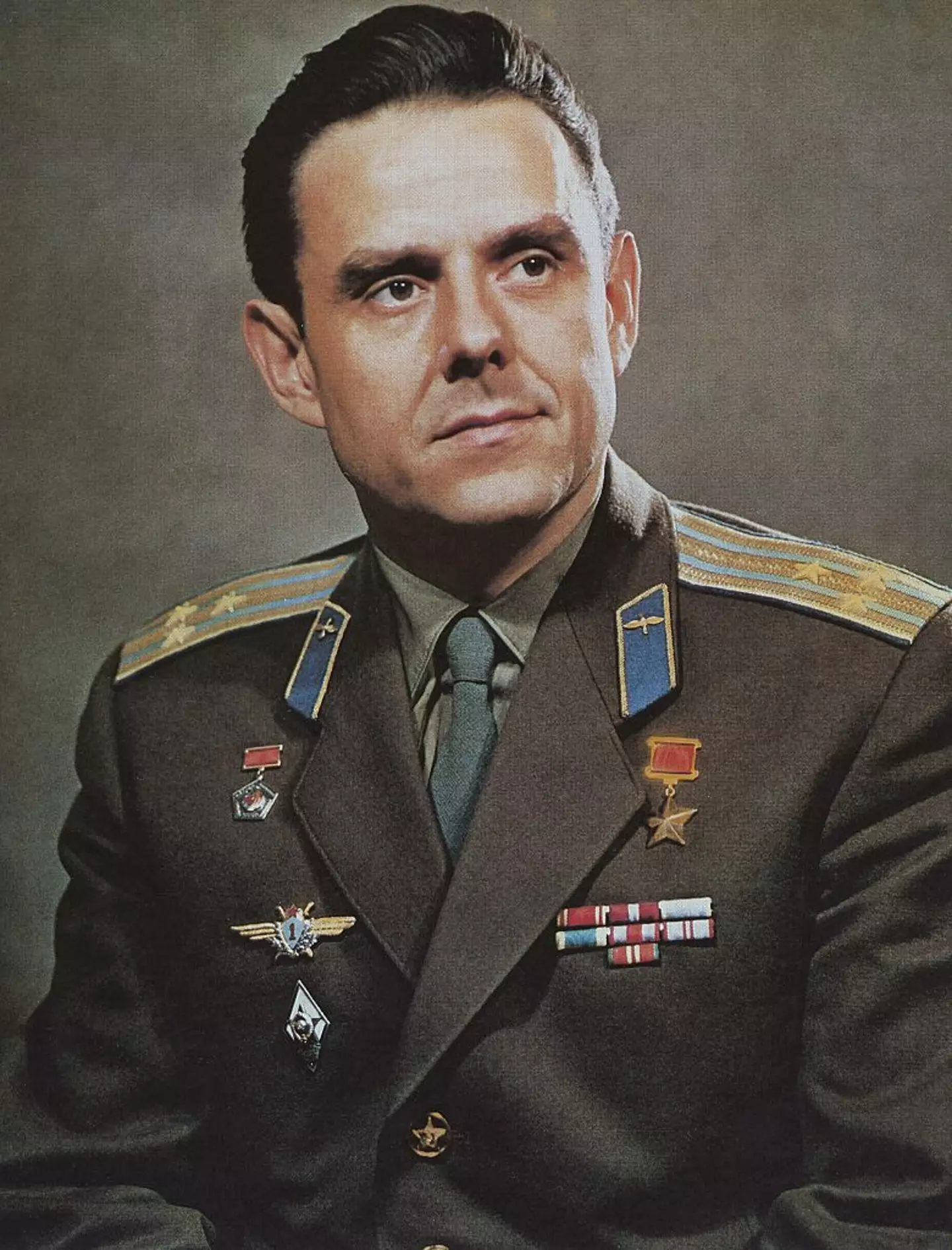

Vladimir Mikhaylovich Komaro died in 1967 (rps/ullstein bild via Getty Images)
It was on April 23, 1967, when Komarov’s space mission occurred, with him being about to orbit the Earth 16 times within 24 hours.
However, one of the two solar panels that supplied energy for the manoeuvre failed to deploy, meaning Komarov was unable to complete the end goal of the mission.
Little did he know that this would become a space disaster that put back the Soviet lunar program 18 months, as per NASA.
Komarov was manning Soyuz 1, which was supposed to dock with Soyuz 2 and then transfer crews the following day, however, issues would arrive which would see Soyuz 1 having to be brought back to Earth.
Not only did one of the solar panels failed to deploy and was wrapped around the service module, he could not manoeuvre the spacecraft because of ‘interference of the reaction control system exhaust with the ion flow sensors’.
These sensors were one of the main methods of orientation, which led to the decision being made to bring Komarov back to Earth, and while re-entry was fine…his landing was not.
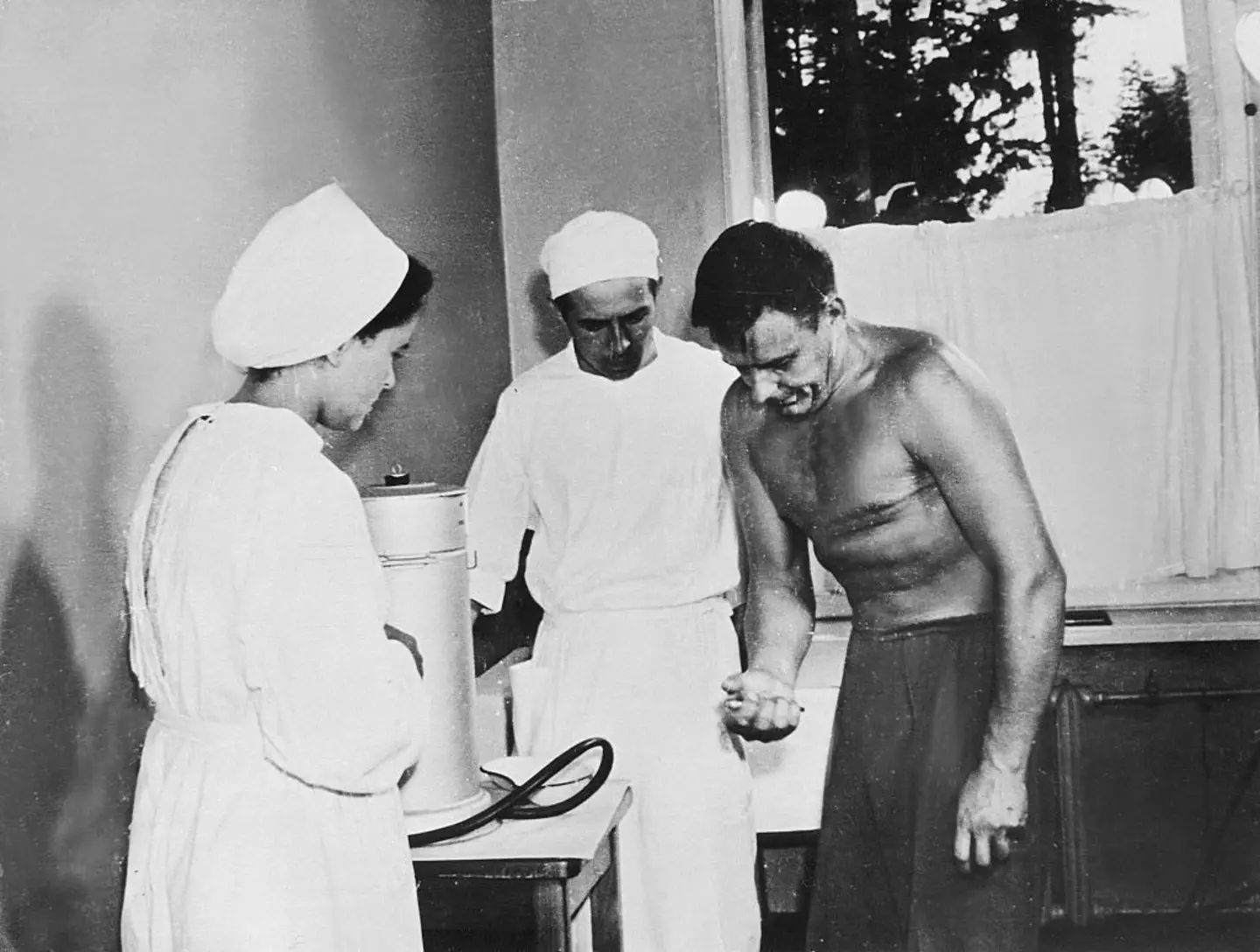

His spacecraft failed after his re-entry (ullstein bild/ullstein bild via Getty Images)
When he reached an altitude of 23,000 feet, Komarov’s parachute that was meant to deploy, but when he deployed his drag chute to slow his decent down, a failure of a pressure sensor meant that the main parachute did not deploy, and the reserve chute became tangled with the drag chute.
Out of options, Komarov had no choice but to wait for his quick death as he hurdled down to Earth.
With no way to stop his fast crash to Earth, the cosmonaut plummeted to the ground and was killed in an explosion on 24 April, 1967.
Tragically, Komarov knew he was about to die as his final words were overheard by the US listening posts in Turkey. He was clearly enraged talking to Alexei Kosygin, then a high ranking official of the Soviet Union, as his aircraft came crashing down.
His charred remains resembled a ‘lump’ and only his heelbone was recognisable, according to reports.
The audio is from that truly terrifying moment, as Starman claims he also said: “This devil ship! Nothing I lay my hands on works properly.”
However, experts are skeptical of this, while reading the official transcript of Komarov’s final moments from the Russian State Archive, one of the last things he told colleagues was: “I feel excellent, everything’s in order.”
Just a few moments later, he reportedly said: “Thank you for transmitting all of that. [Separation] occurred.”
Featured Image Credit: ullstein bild/ullstein bild via Getty Images
.png)
.png)
President Donald Trump has broken his silence after Elon Musk stepped down from his role as head of the so-called Department of Government Efficiency (DOGE).
With his ‘first buddy’ stepping down from his post in politics, all eyes were cast on the POTUS for his thoughts on the departure – but it wasn’t until almost a day later until we heard from the 78-year-old.
It has long been rumored that their relationship had become fractured, with the pair having been inseparable in the first few months of the Republican reclaiming the Oval Office – but in terms of the billionaire’s exit from the Trump administration, it was expected.
That is because Musk had been working under a distinct role in the US government as a ‘special government employee’ – which allowed him to work for up to 130 days in the office each year.
However, his resignation came three days early, and only one day after he criticized Trump’s ‘big, beautiful bill’.
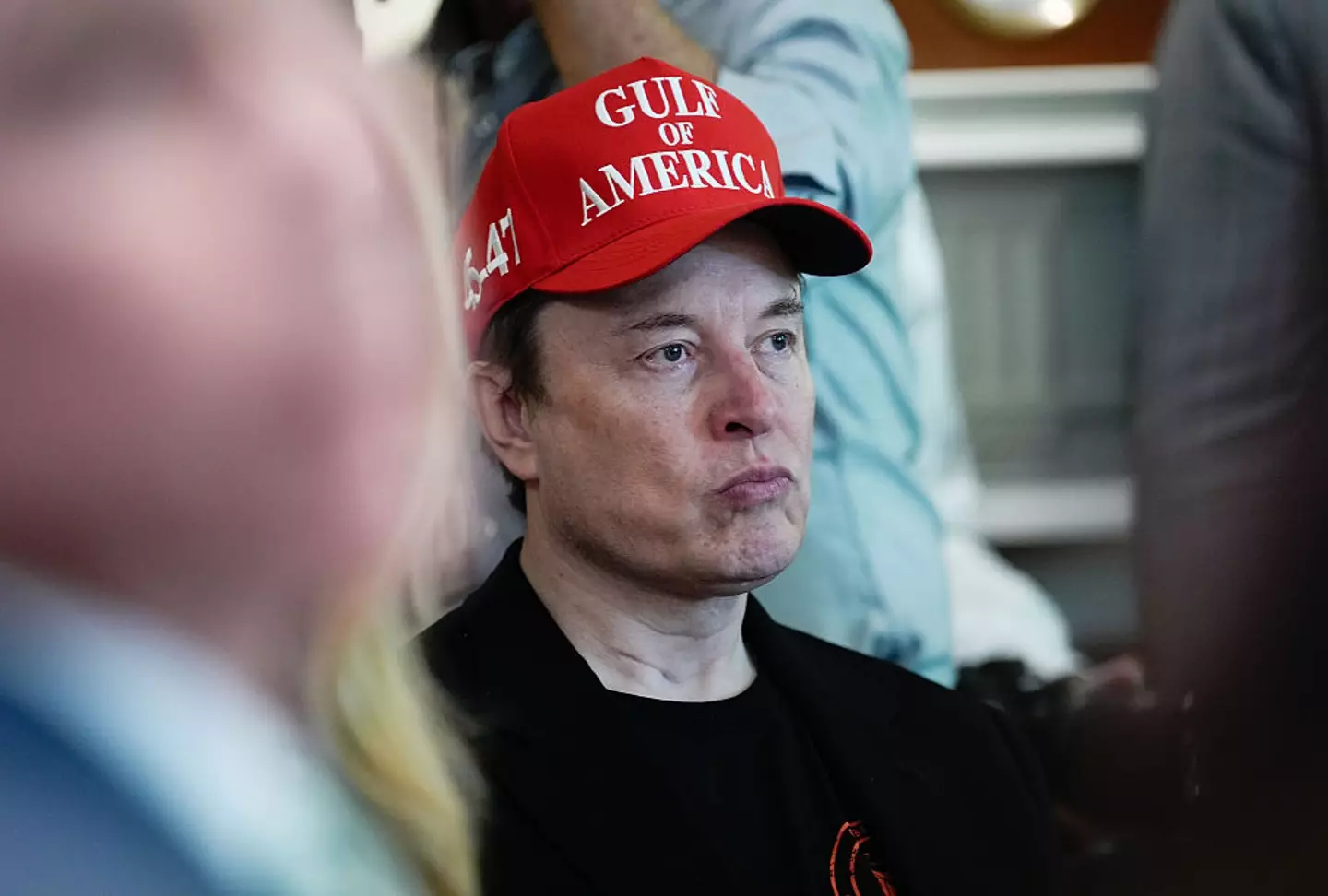

Elon Musk had been working under a distinct role as a ‘special government employee’ prior to his exit (Yuri Gripas for The Washington Post via Getty Images)
Speaking to CBS in a preview clip that aired on Tuesday (May 27), Musk said: “I was disappointed to see the massive spending bill frankly, which increases the budget deficit not just decrease it, and undermines the work that the Doge team is doing.
“I think a bill can be big or it can be beautiful… but I don’t know if it could be both, my personal opinion.”
The bill devised an increased in defense spending, including Trump’s ambition to implement a ‘Golden Dome’ above the US, which would protect it from enemy missiles, as well as multi-trillion dollar tax breaks.
However, as Musk mentioned, it undermined his role as head of the Department of Government Efficiency (DOGE) – with the new legislation could could increase government spending by around $600 billion in the next fiscal year.


President Donald Trump is set to give Musk a fare well later today (May 30), from the Oval Office (Win McNamee/Getty Images)
Regardless, of any friction between the couple, Trump looks set to give Musk a proper send off for his involvement in helping him reclaim the White House.
Taking to Truth Social, the president posted: “I am having a Press Conference tomorrow at 1:30 P.M. EST, with Elon Musk, at the Oval Office.
“This will be his last day, but not really, because he will, always, be with us, helping all the way. Elon is terrific! See you tomorrow at the White House.”
Yes, the pair are set to say fare well later today on May 30 – which is much better way for the world’s richest man to depart, with Trump only having posted a cryptic message hours after news broke that Musk was leaving politics.
Posting a meme to his account, it pictured Trump walking in the middle of a darkened street at night, captioned: “He’s on a mission from God & nothing can stop what is coming.”
As for Musk himself, he announced his departure on his social media platform, Twitter – which he rebranded to X.
“As my scheduled time as a Special Government Employee comes to an end, I would like to thank President @realDonaldTrump for the opportunity to reduce wasteful spending,” he posted.
“The @DOGE mission will only strengthen over time as it becomes a way of life throughout the government.”




